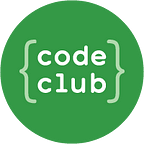Stop the Fires! Moonhack 2022
In 2022, Moonhack is set to take place during World Space Week to focus on the role of satellites in our world. Our Stop the Fires! project showcases satellites that orbit Earth to track bush fires. These satellites have been in our skies for over 20 years and collect data on fire and smoke activity and more.
Haven’t registered for Moonhack yet? Make sure you register here to be counted.
About the Project
Bush fires are devastating. Bushfires that occur near populated areas can be easily identified and then responded to, however there are times when bushfires occur deep in dense forests that can only be identified by satellite. By co-ordinating data between satellites and ground crew, decisions can be made about how to best deal with fires. This data can also be used to help understand the role, frequency and intensity of fires to be able to make predictions and plan for future fire seasons.
The UN’s Sustainability Goal 15 looks at Life on Land and how we can protect and restore terrestrial ecosystems, and looking into the prevention and early detection of bushfires is part of this goal. This project aims to showcase the work that is already being done in this area and create a talking point for children. Our need to study the relationships between environmental factors and fires to minimize risk is critical.
This Scratch project teaches kids how to build a clicker style game, with the aim being to click on all the fires to put them out and save Earth. It uses quite a few unique features of Scratch programming including input from the user, sound and scores as well as iteration and branching functions.
Clicker games, also known as incremental games, have become quite popular in recent years. Simply described a clicker game requires the user to ‘click’ as an input action. In this game the user clicks the fires to put them out. When looking through the code the fires are completely put out when the size reaches 50 and the score equals 0. Until then the fires will keep cloning for the user to click.
Australian Curriculum Links
The Stop the Fires! project is an example of work suitable for the year 5–6 band of the Digital Technologies curriculum. It’s use of branching, iteration and user input allows the developer to showcase their knowledge and understanding of algorithm creation.
This project also links well to Year 6 Science in both the Biological and Earth and Space strands. In Biological Science students can look at how fire effects the growth and survival of living things. This brings in a natural connection to Aboriginal and Torres Strait Islander knowledge and understanding of a ‘cool burn’, used to hunt animals, maintain ecosystems and manage the land. In Earth and Space students can explore bushfires as a natural disaster.
Further Resources
To broaden understanding of the content within this project there are many great resources which can be accessed.
Read about the role that NASA’s satellites play in tracking reporting on bush fires.
Learn more about cool burning techniques and access teaching resources from Cool Australia.
Want to know more about the data that is collected? This article describes and links to this information.
Explore Worldview. This platform allows you to see satellite imagery used to track fires, based on data collected. You can explore your local country, different dates and click into data on the fires detected. Using this tool would expand the coverage of the year 5–6 Digital Technologies achievement standard.
This video showcases Australia’s bushfire hunting satellites and also shares our historical past of lookout trees as our way of spotting bushfires.
Moonhack takes place from October 10th to 23rd in 2022. Make sure you register to be counted in this year’s numbers!
Kaye
Moonhack Mission Control
